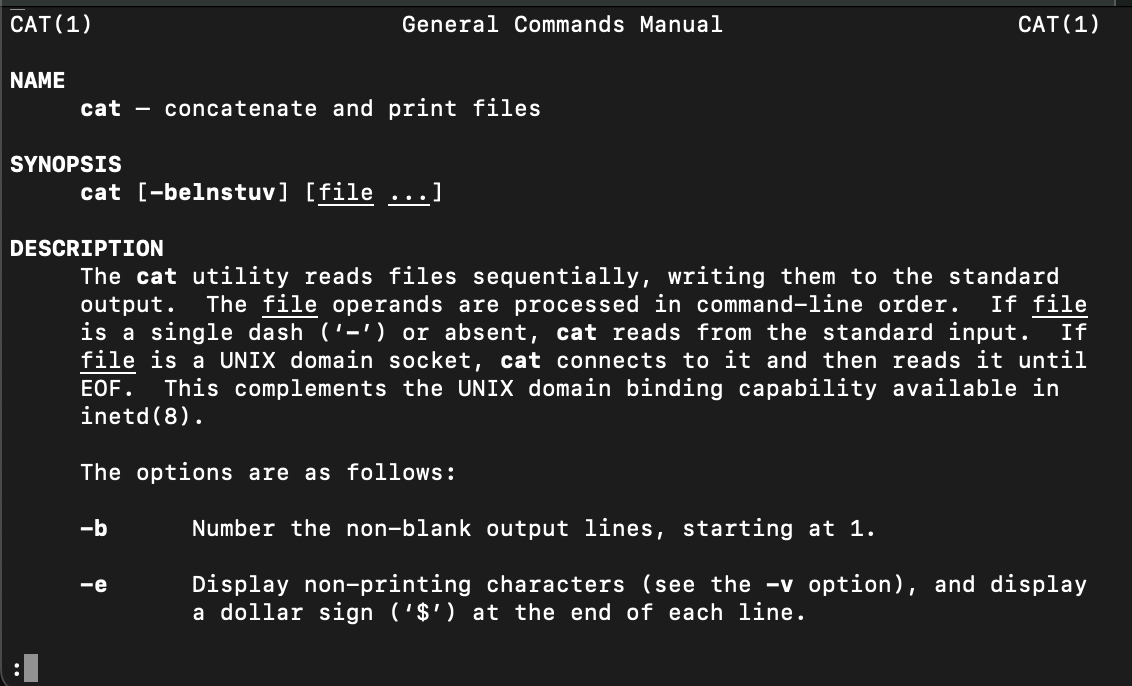
Cat tail more less, and the whole pie
There are a million ways to skin a cat, but who skins cats?
Anyway, heres a few commands to use on Linux systems via CLI to read the contents of a file.
Commands:
- more
- less
- head
- tail
- cat
more
more is a tool for viewing text files, typically used for large files like logs. When using more, press spacebar to go to the next page
Examples using a file named logs.txt
more logs.txt # show the document one page at a time
more -num logs.txt # show the document page few lines as specified bu (-num)
more -10 filename will show 10 lines for every page
less
less is more of the same as more command except:
- You can navigate the page up/down using the less command but not in more command.
- You can search a string in less command. (use /keyword to search through the file)
- more is limited, and development on “more” had stopped
- it uses the same functions as vi editor
less is sometimes considered a pager. It will display one page of a file at a time and let you scroll up and down through the file at your leisure.
Examples using a file named logs.txt
less logs.txt
head
head displays the first ten lines of a file, unless otherwise stated.
Example
head myfile.txt # Displays the first ten lines of myfile.txt.
head -15 myfile.txt #Displays the first fifteen lines of myfile.txt.
tail
tail display the last part of the file
Examples
tail filename : display the last 10 lines of the file
tail -n 20 filename : display the last 20 lines of the file
cat
cat has nothing to do with cats. It’s short for catenate, which dumps the contents of text files. Cats think about lots of things, but not usually about text files. cat can be used to join multiple files together and print the result on screen (it will not show page by page)
Examples:
cat logs.txt # to display all the contents of file logs.txt
cat 01.txt 02.txt # to display the contents of both files
cat file1.txt file2.txt > file3.txt # Reads file1.txt and file2.txt and combines those files to make
cat note5 >> notes #attach note5 to notes
cat >> file1 # add additional data in file1
man
A man page (short for manual page) is a form of software documentation usually found on a Unix or Unix-like operating system. If you want a quick tutorial on how to use a command, there is most likely a manual added to the command on a linux system. Much like the ‘–help’ or the ‘-h’ flag on some commands the man pages will give you a full description of the command and its intended use.
Example:
man cat
Example Output:
